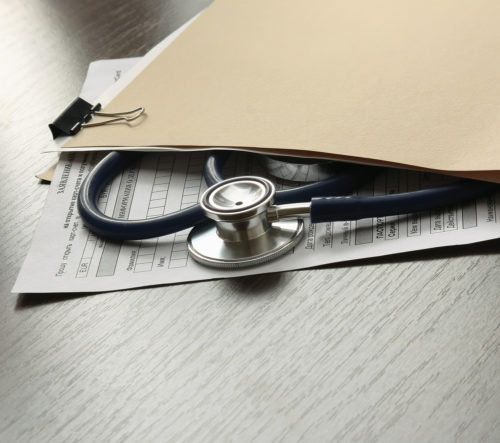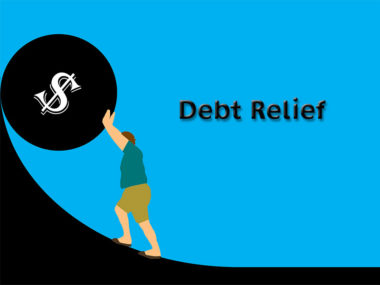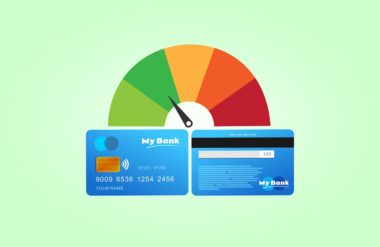
You can face a variety of consequences if you don’t pay your medical bills. The exact repercussions will depend on your situation, including the amount you owe and who your provider is. While some consequences are worse than others, they generally get worse the longer you don’t pay your debt.
Because things will get progressively worse, it’s best to face your debt head-on and avoid these issues altogether. With a proactive approach, you may even see large medical bills reduced or completely forgiven.
Dealing with medical bills can be difficult, but with the right resources and support, it’s far more manageable than the consequences of avoiding your debt.
Table of Contents
The Consequences of Not Paying Medical Bills
Ranging from inconvenient to disastrous, here’s what you can expect if you don’t pay your medical bills:
Late Fees and Interest
When you first receive a medical bill, it should include an issuance date — the date on which you were charged for the services rendered. If you fail to pay after a certain time beyond this date, then you could be subject to late fees and interest payments on your bill.
However, the good news is that — unlike many other forms of debt — late fees and interest are not a given on your medical bills. Further, depending on the laws of your state, medical providers may be banned from tacking on late fees to medical bills or charging interest rates beyond a certain level.
If you can be charged for late fees or interest, then it should be stated in the terms of service upfront. Make sure to read any paperwork that you’re provided with carefully before agreeing to treatment so you’re familiar with the payment terms, possible fees, and expected interest rate.
Debt Collections
If you start to carry medical debt and show no signs of paying it off, your provider may send your bill to a debt collections agency. Typically, you’ll have a grace period of roughly 30 to 90 days before your account is turned over to collectors, but the exact timeframe will depend on your lender and local laws.
Debt collectors specialize in being annoying to get you to repay your medical debt. Often using phone calls and letters, they are relentless in their efforts to contact you — and once they get started, they can be difficult to stop.
On top of being unpleasant to deal with, having your medical debt go to a collections agency can have real and lasting consequences. As soon as a medical bill goes to collections, it will show up on your credit report, where it will remain for the next seven years.
Credit Damage
The simple act of having medical debt won’t automatically ruin your credit, but the consequences of carrying that debt for too long certainly will.
Regardless of how large your bill is, your credit score will decrease if you’re late on your payment or the account becomes delinquent. It will take an even larger hit if your account gets sent to collections or you have to declare bankruptcy.
Unless you’re able to get them removed, your medical bills will stay on your credit report for years to come. The effects of low credit can be devastating, making it far more difficult to find financial security. And while it only takes a moment for your score to drop, it can take years to fully repair your credit.
Bankruptcy
You may need to consider filing for bankruptcy if your medical debt is truly unmanageable. Though it sounds almost far-fetched, it isn’t an unlikely consequence, as medical debt is the main reason people file for bankruptcy. This situation is so common, it’s earned the nickname of “medical bankruptcy.”
While the medical bankruptcy process will free you from debt, it will also devastate your credit score. It will stay on your credit report for the next decade. Like other negative items, bankruptcy will affect your finances for years to come.
Lawsuits
If the collections agency isn’t able to get anything out of you, then your medical debt problem could move on to the final phase, where legal action is taken against you. Either the collections agency or your medical provider could sue you for your unpaid medical bills. A court could authorize more forceful measures to appease them.
Drastic Collection Measures
Ultimately, your provider and the collections agency just want to get paid. If other collection tactics have failed, the following methods may be the only options they have left:
- A lien, which is a claim made on your property — usually a valuable asset like your home or car — that allows your creditors to collect on your debt;
- Wage garnishment, which is the process of withholding a portion of your paycheck so it can be sent to your lender or provider until your debt is repaid;
- An account levy, which allows your creditor to take funds directly from your bank account to repay your debt.
Because the above measures are so extreme, your lenders will likely try all other options before resorting to court-ordered payments. In addition to negatively affecting your finances, liens and wage garnishment will also lower your credit score. An account levy, luckily, should not directly harm your credit.
Jail
Thankfully, you cannot be sent to jail for failing to pay your medical bills. By law, someone cannot be imprisoned for failing to pay any civil debt. However, you can still go to jail if you fail to appear in court or if you ignore any court orders.
What to Do if You Can’t Afford Your Medical Bills
There are several different strategies you can use to reduce your medical debt, or if you start early enough, to prevent medical debt from becoming a problem in the first place:
Don’t Ignore Your Medical Bills
Ignoring your debt won’t make it go away; it will only make things worse. Like it or not, you have to deal with this problem.
If you do avoid your debt, you’re more likely to face the serious financial consequences of not paying your medical bills. Facing the issue directly is a vital step in determining how to solve it — even if the situation is dire or your debt is overwhelming.
Continue Getting Medical Treatment
Do not delay or stop getting the medical treatment you need. Forgoing medically necessary treatments can only make your health problems worse, causing you to get an even larger bill later on down the road.
You should also remember that many insurance plans are required to cover preventive care at no cost to you. Keeping up on your preventive care visits can help you identify health issues early on when they’re easier to treat, saving you money in the long run.
Ask for an Itemized List
It’s worth asking your provider for an itemized list of the services you received, especially if you’ve had extensive treatment or a lengthy hospital stay. Ask them to list every single charge you’ve incurred while receiving care.
According to anecdotal reports on social media, hospitals may remove seemingly unreasonable or egregious expenses — such as overpriced bandaids or pain relievers that can be purchased over the counter — from your bill. This saves you the trouble of disputing these charges yourself.
If this trick doesn’t reduce the amount you owe, you can reference the list of charges to make sure there are no errors on your bill.
Double-Check Your Bill
Medical providers and insurance companies sometimes make mistakes. Between misdiagnoses, duplicate charges, and complicated billing software, small errors can easily add up and increase the amount you owe.
Verify that the services you’re being billed for are the services that you actually received. Additionally, make sure your provider has appropriately charged your health insurance.
Don’t hesitate to ask your provider any questions you have about your bill, especially if a charge seems incorrect. If you notice obvious or clear mistakes, then you can dispute your medical bill to get those charges removed.
Negotiate Your Medical Debt
You can always try negotiating your medical debt. Your provider may be willing to accept a smaller sum if you can guarantee that they’ll get it. Additionally, some providers may be willing to give you a significant discount if you can make a lump-sum payment on the spot.
Speak with your provider about finding an amount that they will accept and that you will be able to meet. It can be intimidating to ask, but the reward (reduction of medical debt) greatly outweighs the risk (your provider saying no) of asking to negotiate. If negotiations go well, you may be able to get your medical debt forgiven entirely.
See if They’ll Price Match
You may be able to reduce your bill by showing how affordable the same treatment or services would be when offered by a different healthcare provider.
Similar to shopping for a car, you can use the Healthcare Bluebook to see the going rate for different services and procedures. This tool also shares what it considers a reasonable or fair price for each service in its database to be.
The cost of care can vary greatly between providers. You may have an easier time negotiating your bill with some hard data to support your argument.
If this strategy doesn’t work, you can always use the Bluebook or a similar tool to find the most affordable option before seeking care. If it isn’t an emergency and you have the option of doing so, you can also look for affordable care clinics in your area.
Make a Payment Plan
During your negotiations, work out a payment plan with your provider. This may not reduce the amount you owe, but it will help make paying it back more manageable.
Explain your situation to your provider or the billing department. Figure out an amount that you can comfortably pay back, and determine a timeline for repayment. Don’t forget to ask about any additional fees or interest charges, so you can ensure this decision won’t inadvertently hurt your finances.
It’s best to ask for a payment plan sooner rather than later. Providers will probably be more willing to work with someone who is proactive about managing their debt, rather than someone they’ve already been hounding for payment.
Think Twice Before Taking on More Debt
While medical debt consolidation can be a viable strategy, you should be careful before taking on more debt. Interest charges and late fees are not a guarantee when it comes to medical bills, and if you aren’t careful, your debt will cost a lot more than it would’ve otherwise.
It may seem like a no-brainer to use your credit card for repayment, but this may do more harm than good. If you can get a lump-sum discount but don’t have enough in your bank account to cover it, using your credit card may not be a bad idea, especially if you can pay off the remaining balance quickly.
However, if you already have a large balance or end up carrying it for a long time, this will only plunge you deeper into credit card debt.
Taking out a loan can be just as tricky. You’d probably need to take out a personal loan, and though the interest rate would almost certainly be lower than a credit card, it could still be too high to make the loan worth it.
If you do choose to take out a loan and you own your home, a home equity loan or line of credit is a better option, as interest rates are usually much lower. You should be certain that you can pay the loan back, though; if you fail to do so, you could end up losing your home.
Ask for Help
Medical bills can be huge, but you don’t necessarily have to face them alone. A loan from friends or family could help you get out from under the shadow of your medical debt.
In addition, some charities help pay medical bills for people in certain circumstances. You can also turn to social media and crowdfunding platforms to raise money for your medical expenses.
In addition, you may be eligible for financial assistance from your provider. Don’t hesitate to ask about any aid they can offer or programs you could apply for. You should also see if you’re eligible for either Medicare or Medicaid.
Leaving your medical bills unpaid can have a severe impact on your credit score and on your income. Find ways of paying your medical debt, even if it’s just a little at a time, to avoid these consequences and to protect your financial health.
Image Source: https://depositphotos.com/





